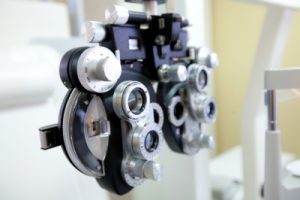Elmiron Lawsuits

Lawyers are pursuing financial compensation for individuals nationwide who have been left with permanent and debilitating vision problems that resulted from side effects of Elmiron, a prescription medication for treatment of interstitial cystitis or bladder pain syndrome.
As a result of the drug makers’ failure to warn about the risk of permanent retina damage that may result from long-term use of the medication, Elmiron settlements are expected to provide substantial compensation and benefits that will be based on the extent of the injury suffered by each plaintiff, including:
- Coverage for Medical Expenses and Vision Treatments
- Compensation for Pain and Suffering
- Past and Future Lost Wages or Earning Capacity
- Other Benefits for Retina Damage Caused by Elmiron
While hundreds of lawsuits are being pursued by individuals who have experienced similar injuries, the amount that each individual may receive to settle their Elmiron vision loss claim will depend on the individual circumstances in their case. To help determine if you or a loved one may be eligible for a settlement, request a free consultation and claim evaluation.
The side effects of the interstitial cystitis drug Elmiron have been linked to form of vision loss and retina damage known as pigmentary maculopathy.
ELMIRON VISION LOSS LAWSUITS: Product liability lawyers are reviewing potential Elmiron lawsuits for long-term users who have experienced eye problems or vision side effects, which may have been diagnosed as age-related macular degeneration or other retinal disease.
MANUFACTURER: Janssen Pharmaceuticals, Inc.
OVERVIEW: Elmiron (pentosan polysulfate sodium, or PPS) was approved by the FDA in 1996 for the treatment of interstitial cystitis, which affects more than 1 million people in the U.S. alone. Also known as “painful bladder syndrome”, interstitial cystitis involves to severe and chronic pain in the bladder and groin.
Although the drug has been on the market for decades, increasing evidence published in recent years has found that Elmiron may have a toxic impact on the retina, leading to irreversible vision loss.
This maculopathy from side effects Elmiron may result in:
- Vision loss
- Loss of vision detail
- Loss of night vision
- Difficulty reading
- Inability to drive
ELMIRON MACULOPATHY: A number of studies and case reports published in recent years have highlighted the potential link between Elmiron and pigmentary maculopathy, leading many experts to now describe the retinal disease as “Elmiron maculopathy” or “PPS maculopathy”, referring the active pharmaceutical ingredient in the drug.
In May 2018, researchers with the Emory Eye Center in Georgia first raised concerns about this risk in a retrospective case report published in the medical journal Ophthalmology, which suggested long-term Elmiron use could cause this atypical maculopathy that results in deterioration of areas of the retina that control highly detailed vision.
These eye problems appear to worsen the longer Elmiron is used, and vision may continue to degrade even after the medication is stopped according to a study published in February 2020. This appears to have been confirmed by another study on persisting Elmiron vision problems published in July 2020.
Following additional research, Elmiron warnings were updated in Canada to add information about the risk of pigmentary maculopathy in September 2019, but the same information was not provided to U.S. consumers or doctors.
As a result of the drug makers decision to withhold information about this risk for decades, many ophthalmologists and doctors remain unaware of the risk As a result, these Elmiron vision problems are often misdiagnosed as other conditions, such as age-related macular degeneration, pattern dystrophy or other retinal diseases.
LAWSUITS OVER ELMIRON VISION LOSS: Product liability lawyers are evaluating whether users may be entitled to compensation through an Elmiron lawsuit as result of the decision by the drug makers to withhold warnings for decades about the importance of carefully monitoring users for signs of vision loss or other side effects associated with pigmentary maculopathy, which may get progressively worse the longer the drug is used.









